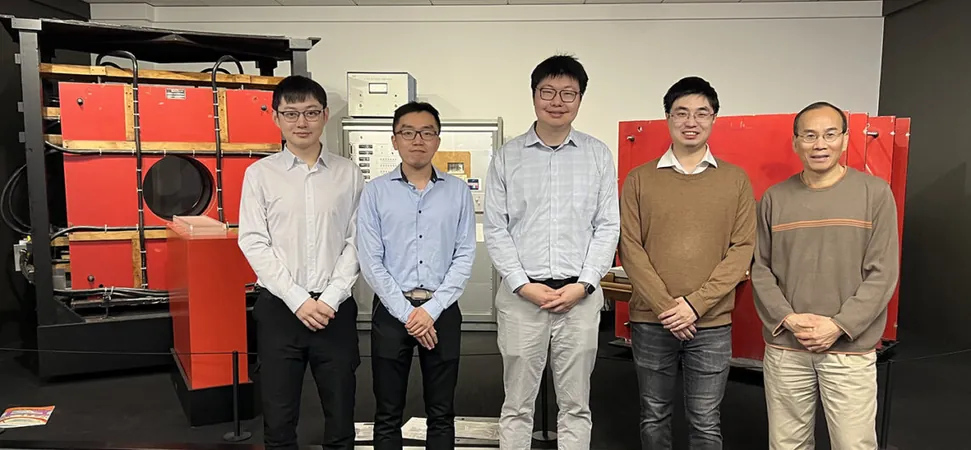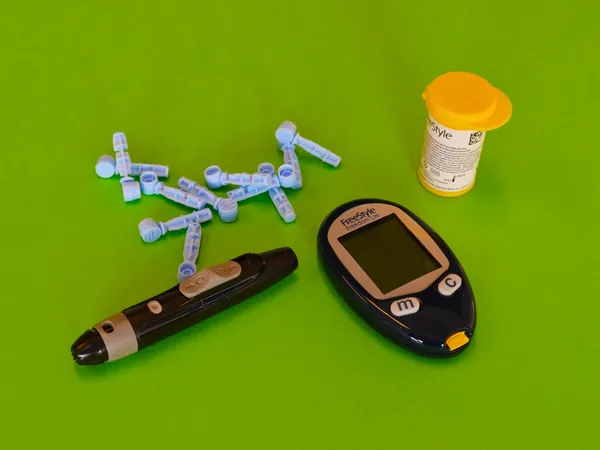
Revolutionary MRI Scan Unlocks the Secrets of Brain Metabolism and Disease
2025-06-23
Author: Yu
A groundbreaking MRI technology developed by researchers at the University of Illinois Urbana-Champaign could transform our understanding of brain function and disease. This non-invasive imaging method allows for a high-resolution view of brain metabolism, offering new insights into conditions like brain tumors and multiple sclerosis, all in just minutes.
Under the leadership of Zhi-Pei Liang, a professor in electrical and computer engineering, the team’s findings were detailed in the journal Nature Biomedical Engineering. "Understanding the brain and its dysfunctions is one of the greatest scientific challenges today," said Liang, highlighting the added dimension of metabolic imaging to the capabilities of traditional MRI.
While conventional MRIs excel in providing intricate images of brain structure, they fall short in revealing metabolic activity—key to diagnosing and understanding neurological diseases. Postdoctoral researcher Yibo Zhao, the study's lead author, emphasized that metabolic changes often precede visible abnormalities, making early diagnosis crucial.
The researchers’ innovative approach goes beyond standard MRI techniques, integrating magnetic resonance spectroscopic imaging (MRSI) to capture signals from brain metabolites alongside water molecules. By overcoming previous technical hurdles, their method reduces brain scan times to just 12.5 minutes.
Tests on various populations showcased the technique's potential. Healthy individuals displayed nuances in metabolic and neurotransmitter activity across different brain regions, while patients with tumors showed metabolic changes in tumor grades that appeared identical in regular MRIs. In multiple sclerosis patients, the new imaging method identified significant molecular alterations as early as 70 days before they were visible on conventional scans.
This revolutionary technique promises broad clinical application. By monitoring metabolic shifts over time, doctors can evaluate treatment effectiveness for neurological disorders and customize therapies based on individual metabolic profiles.
Liang, who began his career in the lab of Nobel laureate Paul Lauterbur—one of the pioneers of MRI technology—echoed a vision for clinical use of high-resolution metabolic imaging. "As healthcare progresses towards personalized and precision medicine, this fast and effective technology meets the pressing need for non-invasive metabolic imaging."






 Brasil (PT)
Brasil (PT)
 Canada (EN)
Canada (EN)
 Chile (ES)
Chile (ES)
 Česko (CS)
Česko (CS)
 대한민국 (KO)
대한민국 (KO)
 España (ES)
España (ES)
 France (FR)
France (FR)
 Hong Kong (EN)
Hong Kong (EN)
 Italia (IT)
Italia (IT)
 日本 (JA)
日本 (JA)
 Magyarország (HU)
Magyarország (HU)
 Norge (NO)
Norge (NO)
 Polska (PL)
Polska (PL)
 Schweiz (DE)
Schweiz (DE)
 Singapore (EN)
Singapore (EN)
 Sverige (SV)
Sverige (SV)
 Suomi (FI)
Suomi (FI)
 Türkiye (TR)
Türkiye (TR)
 الإمارات العربية المتحدة (AR)
الإمارات العربية المتحدة (AR)